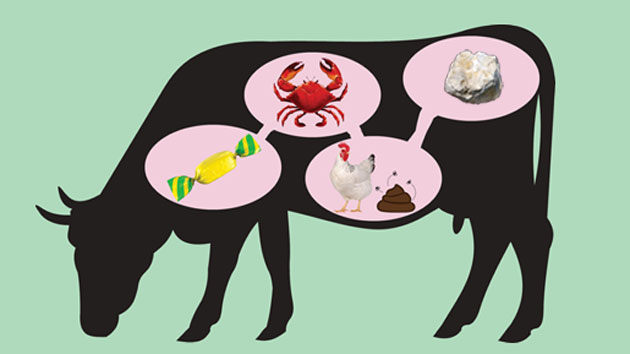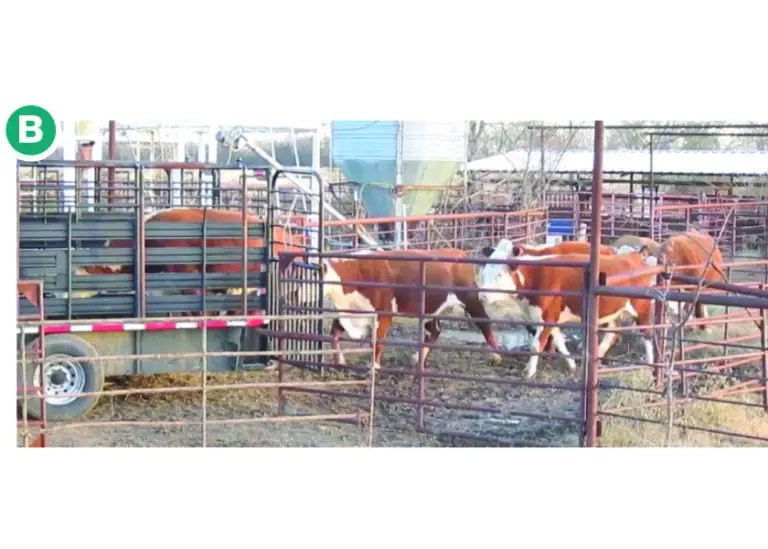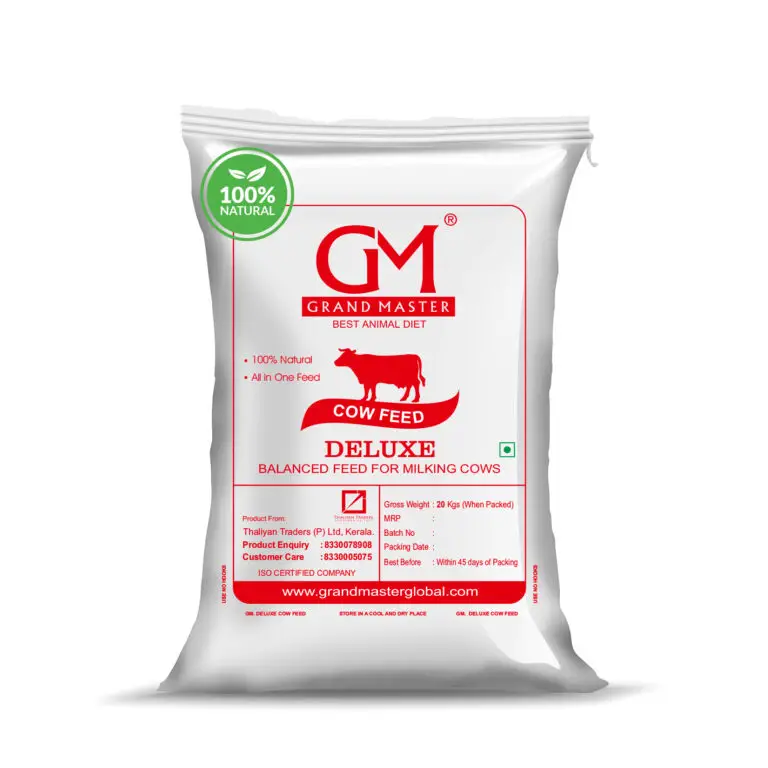What Happens When Cows Bloat : Essential Guide
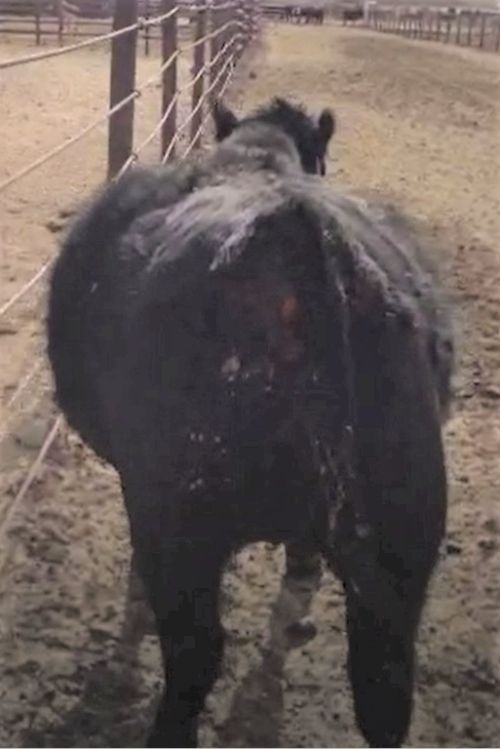
When cows bloat, rumen motility decreases, leading to potential collapse and death if untreated. Bloat is a serious condition in cattle caused by the accumulation of excessive gas in the rumen.
This condition can be life-threatening if not addressed promptly. Cows experiencing bloat may exhibit symptoms such as a distended left abdomen, difficulty breathing, and a reluctance to eat. The pressure from the gas buildup can hinder their ability to breathe properly, and if left unchecked, it can lead to sudden death.
Understanding the causes and symptoms of bloat is crucial for effective prevention and treatment in cattle. Immediate intervention, such as passing a stomach tube to release the gas, is essential in managing this digestive disorder to prevent serious consequences.
Understanding Bloat In Cows
Understanding Bloat in Cows Bloat in cows is a digestive disorder resulting from excessive gas accumulation in the rumen, potentially leading to asphyxiation. Bloat can cause severe health issues and even death in cows if not promptly addressed.
What is Bloat? Bloat occurs due to the buildup of excessive gas, such as carbon dioxide and methane, during microbial fermentation of feed in the rumen. This accumulation can lead to severe health complications in cows.
Causes of Bloat Bloat in cows can be caused by various factors, including the consumption of rapidly fermentable feed, leading to the production of excessive gas in the rumen. Additionally, obstruction in the digestive system can contribute to bloat.
Symptoms of Bloat Typical symptoms of bloat in cows include a distended abdomen, decreased appetite, signs of distress, and difficulty breathing. In severe cases, bloat can lead to asphyxiation and even sudden death in cattle.
Impact Of Bloat On Cows
Bloat in cows, also known as ruminal tympany, is a condition where the rumen becomes distended due to excessive gas accumulation. This distension can lead to breathing difficulties and in severe cases, the risk of death. The rumen is the largest stomach compartment in ruminants and is crucial for the digestion process. When bloat occurs, the pressure in the rumen can inhibit breathing, causing distress and struggling for the affected cows. The accumulation of excessive gas can lead to asphyxiation, posing a significant threat to the animal’s life. Recognizing the symptoms of bloat and providing prompt treatment is essential to prevent any adverse outcomes for the cows.
Preventing Bloat In Cattle
Preventing Bloat in Cattle: Bloat in cattle can be prevented through controlled feeding practices, which involve providing a consistent and balanced diet to the animals. Additionally, the use of feed additives can help regulate the digestive system and prevent excessive gas accumulation in the rumen. Regular monitoring and early intervention are crucial in identifying any signs of bloat and taking necessary actions to prevent the condition from worsening. It’s essential to maintain a proactive approach to cattle nutrition and health to minimize the risk of bloat and ensure the well-being of the animals.

Credit: beef.unl.edu
Treating Bloat In Cows
Bloat in cows occurs when there is an excessive buildup of gas within the rumen, causing distension of the left abdomen and difficulty breathing. To treat bloat, passing a stomach tube to release gas is the best option, followed by identifying and addressing the cause of the obstruction.
Early intervention is crucial to prevent the animal from collapsing and dying.
| Stomach Tube Procedure: Passing a stomach tube is the best treatment for gassy bloat in cows. It helps release gas, providing relief. |
| Identifying Obstructions: Once the gas is released, it’s essential to identify and address the cause of the obstruction that led to bloat. |
| Veterinary Surgical Procedures: In severe cases, veterinary surgical procedures may be necessary to treat bloat in cows effectively. |
Case Studies Of Bloat Incidents
In cases of bloat incidents in cows, the rumen accumulates excessive gas, leading to bloated left abdomen, breathing difficulties, and decreased appetite. Immediate treatment with stomach tube insertion is crucial to release gas and prevent fatal outcomes. Proper management and monitoring can help prevent bloat in cattle.
| Real-life Bloat Emergencies: Cows with severe bloat may collapse and die due to rumen motility not decreasing. |
| Successful Bloat Treatments: Passing a stomach tube helps release gas, and identifying the cause is crucial for treatment. |
| Case Studies of Bloat Incidents: Cattle with bloat show a distended abdomen, struggle to breathe, and may face sudden death. |
Bloat In Different Cattle Breeds
Bloat in different cattle breeds can be influenced by genetic factors. Certain breeds are more prone to bloat due to their genetic makeup. It is important to consider the breed when implementing preventative measures for bloat in cattle. Understanding the genetic predisposition to bloat can help in developing targeted strategies to minimize the risk of bloat in susceptible breeds.
Economic Impact Of Bloat
Bloat in cows can have a significant economic impact due to reduced milk production and increased veterinary costs. When cows bloat, their rumen becomes distended with gas, leading to discomfort, reduced feed intake, and potential death if not treated promptly.
It is crucial for farmers to monitor and prevent bloat to maintain the health and productivity of their cattle.
| Economic Impact of Bloat |
| Losses in Livestock Industry: Bloat can lead to significant economic losses in the livestock industry due to decreased productivity and potential fatalities. |
| Cost of Bloat Prevention: Implementing preventive measures such as proper feeding management and monitoring can help reduce the economic burden of bloat on cattle operations. |
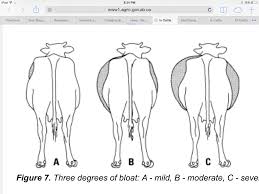
Credit: wilkes.ces.ncsu.edu
Future Research And Innovations
Innovative research is shedding light on the consequences of bloating in cows, a potentially life-threatening condition. Understanding how to alleviate gas buildup and prevent bloating can be crucial for livestock health and welfare. Cutting-edge solutions are being developed to address this pressing issue in the agricultural industry.
Bloat in cows can be a life-threatening condition caused by excessive accumulation of gas in the rumen. To prevent bloat, it is important to ensure that cattle do not overeat and to provide a consistent and balanced diet. Rapidly available wheat should be avoided, and supplements or minerals containing monensin should be fed uniformly. If a cow does bloat, passing a stomach tube to release the gas is the best treatment for gassy bloat. Removing the cause of the obstruction is important to prevent the problem from recurring. In severe cases, surgery may be necessary. Future research and innovations in bloat prevention and treatment are focused on finding alternative feeds and supplements that can reduce the risk of bloat. Advanced treatment methods include using probiotics and enzymes to improve rumen function and prevent gas accumulation.
Credit: www.reddit.com
Frequently Asked Questions
Can A Cow Survive Bloat?
A cow can survive bloat if treated promptly by releasing gas through a stomach tube. Failure to address it may lead to collapse and death.
How To Release Gas From A Bloated Cow?
To release gas from a bloated cow, pass a stomach tube. Look for the cause of the obstruction after gas release.
What Does A Cow Look Like With Bloat?
When a cow has bloat, you may notice a distended left abdomen and signs of distress. This can cause the animal to quit eating and struggle to breathe. Bloat can lead to death if not treated promptly. Passing a stomach tube is a common treatment to release gas from a bloated cow.
What Symptoms Would Be Typical Of A Cow Experiencing Bloat?
Cows with bloat may show a distended abdomen, stop eating, struggle to breathe, and may collapse and die if not treated promptly.
Conclusion
Cows can survive bloat if treated promptly with a stomach tube to release gas. However, severe bloat can lead to collapse and death. Understanding the symptoms and causes of bloat in cattle is crucial for prevention and timely intervention. Protect your livestock by being aware and proactive.
Also Worth Reading:
- How Often Should You Drench Cattle Nz: Essential Guidelines
- Best Cattle Feed : Top Picks for Healthy Cows
- Best Way to Load Cattle in a Stock Trailer: Expert Tips
- Cattle Problem in Australia: Urgent Solutions
- Discover the Ultimate Best Cattle Feed Formula
- How are Farm Cows Killed : Unveiling the Slaughter Process
- How Do Cows Know Not to Cross Cattle Guards : The Surprising Science
- How Do You Connect Cattle Panels Together: Expert Tips
- How Do You Know If Baby Has Cows Milk Intolerance: Symptoms and Diagnosis.
- How Do You Know If Cows are Pregnant : A Comprehensive Guide
